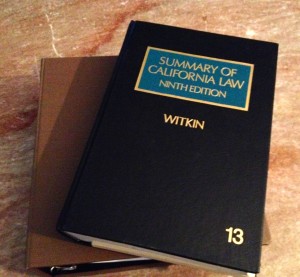When Has a Lawyer Breached the Duty Owed to a Client?
In addition to proving the nature of the duty of care the attorney owed, a client (or former client) claiming malpractice must prove the attorney breached that duty where the client is concerned.
To prove a lawyer has breached a legally-recognized duty, it is necessary to examine the lawyer’s conduct in light of several factors:
TIMING OF THE ADVICE OR OTHER ALLEGEDLY BREACHING CONDUCT.
Time and circumstances have an impact on the nature of legal representation. Legal advice and actions taken on a client’s behalf may constitute proper representation at one time, or under some circumstances, but malpractice when taken (or not taken) in another.
When examining a possible breach of duty, courts and attorneys must look at the relevant action or advice at the time and under the circumstances that existed when the advice was given or the action was taken. The critical question is whether the lawyer’s advice was so legally deficient at that time, or in light of the then-current circumstances, that the attorney failed to exercise the level of skill that a reasonably qualified lawyer would have used when representing a client in those circumstances.
WHETHER THE CONDUCT CONFORMED TO A REASONABLE STANDARD OF CARE AND DISCRETION.
The existence and nature of the duty a lawyer owes to his or her client is a question of law, decided upon by the court (which means that a judge will evaluate the law and determine the answer to that question).
However, the question of whether the lawyer breached that duty by failing to act as a reasonably competent lawyer would have (or should have) acted under the relevant circumstances is a question of fact, and questions of fact are determined by a jury. (If a jury is waived, the judge will make this decision also, but will use the standards applicable to deciding questions of fact.)
Questions of fact are decided by examining the circumstances surrounding the lawyer’s advice: the timing, the facts available to (and known by) the lawyer, and other facts relevant to evaluating how the lawyer handled his or her duty to the client and the case.
MISTAKES ARE NOT NECESSARILY MALPRACTICE.
Attorneys have the right to make judgment calls about tactical issues. The “judgmental immunity” doctrine states that where a lawyer makes a reasonable tactical decision about an unsettled or unclear point of law, the attorney does not commit malpractice unless no reasonable lawyer would have made that decision under the circumstances, as long as the attorney made the decision in good faith after reasonable research and consideration of the issue.
In addition, the lawyer’s obligation to provide a client with competent advice does not require the lawyer to advise the client on every possible alternative or decision that could be made. The lawyer merely needs to provide the client with competent representation, which means reasonable communication and information about the client’s issues and the reasonable alternatives available to the client.
Courts have held that lawyers who use professional judgment in researching and evaluating a client’s issues, and who communicate with the client in an otherwise reasonable manner do not need to also warn clients of “uncertainties” in the relevant legal principles. As long as the attorney exercises reasonable judgment in handling the client’s case, and provides the client with sufficient information to make an informed decision (where relevant), the attorney has satisfied his or her legal duty to the client, even if the client ultimately loses his or her case.
“FRIVOLOUS” CLAIMS ARE NOT NECESSARILY MALPRACTICE.
Even if a court ultimately decides that a filing or legal argument was “frivolous,” the attorney who made the argument or filing is not necessarily liable for malpractice. The standard for frivolous arguments and filings is different than the standard for legal malpractice.
The question is whether the attorney exercised reasonable professional judgment and good faith in making the filing and/or argument at the time it was presented to the court. If so, then the lawyer may have satisfied his or her duty to the client, even if a court ultimately throws the argument out.
DO NOT ATTEMPT TO EVALUATE A BREACH OF DUTY WITHOUT PROFESSIONAL ADVICE AND COUNSEL.
If you believe your attorney may have breached the duty of care owed to you as a client, do not attempt to evaluate your rights and claims alone. Do not use this, or any other website, as the basis for making a decision about your legal rights and claims. Always consult an experienced malpractice attorney promptly–you may compromise, or even lose, your rights if you delay.















